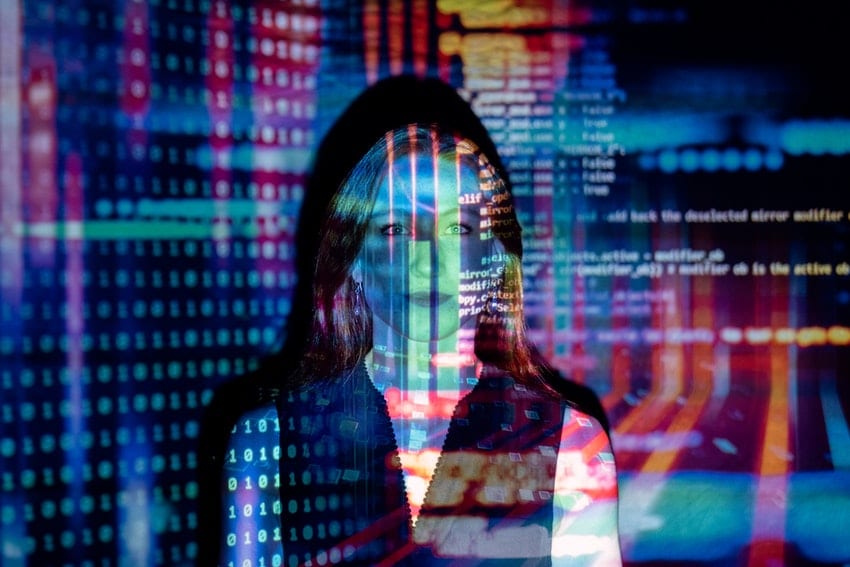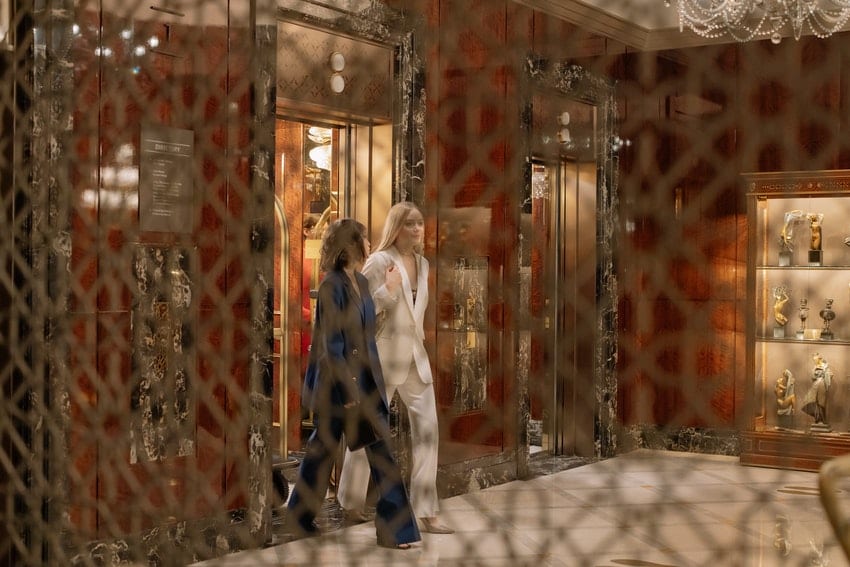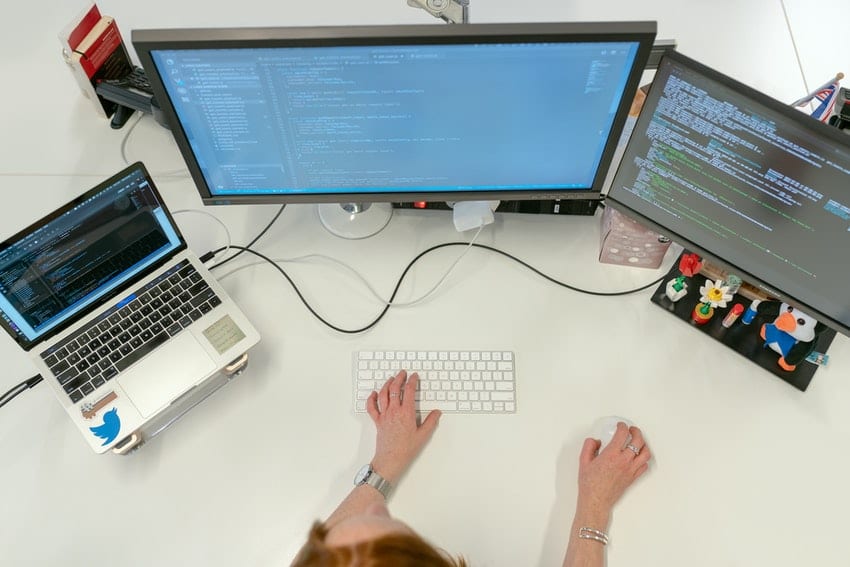What could be worse than being tired after a long flight with hungry children in a huge queue to check-in at a hotel?
Or let’s imagine an even worst-case scenario, when you have to go up to the room with your suitcases on your own to find out the room key does not work.

None of these scenarios would give a nice first impression of your hotel to new visitors. Luckily, there are so many technologies available to enable you to avoid these situations.
According to the latest research, today there are more than 700,000 hotels and resorts around the world. This industry only keeps growing and developing every year and is worth more than $570 billion. According to IBISWorld, there are now 91,000 hotels in the United States alone, bringing in about $190 billion annually.
With the adoption of biometrics like fingerprints, face or iris scanning, or even voice recognition, biometrics have the potential to revolutionize the hospitality industry.
With this, new levels of efficiency and safety can be created. Let’s learn more about future biometrics for hospitality industry in the article!
What Is Biometric Technology?
Biometric technologies are solutions that are commonly used to identify a person based on some aspect, namely, a person's unique physical or behavioral characteristics.
The basic premise for biometric technologies is that each person can be accurately identified by their intrinsic qualities.
Biometric authentication technology is now widely used in corporate and public security systems, home appliances, and various programs.
Convenience is also one of the driving forces of biometrics since you no longer need to dial passwords or carry different keys with you.
There are two types of biometrics used to recognize a person. The first type is biometrics based on physiological characteristics. The second is behavioral biometrics. Physiological identifiers include the following:
- facial recognition
- fingerprints
- finger geometry (the size and position of fingers)
- iris recognition
- vein recognition
- retina scanning
- voice recognition
- DNA matching
- digital signatures
How Does the Hospitality Industry Use Biometric Technologies?
Components of the hospitality industry such as hotels, resorts, and others often face the challenge of ensuring the safety of guests while maintaining all the amenities.
If your hotel has a lot of security measures, guests may not like it and they may never come back. If, on the contrary, security measures are weak, this can lead to theft or something else.

Then what the solution will be here? How does the hospitality industry provide security while maintaining comfort and convenience?
The best solution is biometrics, which can take full responsibility in case of any problem. The uses of biometric technologies can make life easier for hospitality businesses such as hotels, as well as improve operational efficiency, safety, and convenience in many ways.
One of the ways to use biometrics in hotels and other establishments in this domain is to implement registration using fingerprint or face recognition. Biometrics are already actively used in hotels in China.
FlyZoo Hotel in Hangzhou allows guests to select the floor and room number through a mobile app. Upon arrival at the hotel, there are several options for local and foreign check-in.
The first is that locals can register by scanning their faces through a mobile app. Another option is for foreigners who can check in by scanning their faces through vending machines located throughout the hotel lobby.
It has never been possible to avoid all the formalities associated with hotel check-in, but using biometrics such as fingerprint or face scanning can speed up the process dramatically.
In the same way, hotel staff control guest access to different parts of the hotel, for example by requiring a finger scan to access the pool.
Another way to use biometrics in hotels is to avoid key cards that allow guests to enter their rooms. Instead, a person just needs to scan their fingerprint, which greatly simplifies the system.
There is no need to keep an inventory of keys, give out new ones to guests if for some reason they have lost their own.
Biometrics is also widely used to pay for various additional hotel services. For example, requiring your fingerprint to authorize any additional payments for your hotel stay, such as ordering food or drinks in your room, spa treatments, or purchasing various in-room entertainment, will allow you to quickly and accurately bill upon checkout.
It will also help save guests from unnecessary expenses. A child cannot independently order what he wants, without her mother's biometrics.

Benefits of Biometric Technology in the Hospitality Industry
Access Control System
Ensuring security in the hotel is one of the most important tasks, especially in terms of increasing threats to the hotel business associated with infringement on the lives or rights of guests.
For each team managing the hotel, one of the main tasks is to ensure the security of confidential areas and restrict guests' access to storage rooms, warehouses, and other technical areas.
Biometrics can easily help with this, which will allow you not to worry about the fact that some visitors can get into one of the technical rooms.
Previously, keys and locks were widely used to control the access of staff and guests to the hotel premises. Typically, cleaners, like other hotel workers, had to constantly carry a huge number of keys with them, which could easily get lost.
In addition, it was always necessary to run and close or open rooms in case of a visitor's loss of room keys or other problems. With the help of biometric security technology, such problems can be easily avoided, as the fingerprint will become the only key to all areas of the hotel, which greatly facilitates the work of technical staff and saves the hotel from unnecessary problems with visitors.
You can also monitor in real-time the access of staff to restricted areas of the hotel, such as guest rooms, washing rooms, etc. You can track which room a particular hotel employee has entered, thereby roughly understand their location.
Improving Staff Efficiency
To continually meet the needs of guests and provide them with an excellent hotel experience, managers must continually hire more and more employees.
But with the increase in the number of employees, it becomes more difficult for hotel management to keep track of the working hours of each employee and manage them effectively.
Fortunately, biometric identification technology can help with this. After all, such technologies are aimed not only at improving the safety and convenience of customers but also to facilitate the internal management of the hotel.
The use of biometric will help you easily monitor staff time, improve employee efficiency and ensure transparency in payroll accounting. Biometrics are also used to track visits by hotel staff, which reduces the likelihood of theft and other unpleasant things by several times.
Personalized Guest Experience
According to one study, 41% of hotel visitors visited the hotel more often and stayed in only one hotel if an employee could recognize them without giving their name. In another survey, 62% of hotel guests believe that such actions by staff will greatly improve their experience of the hotel.
Using biometric technology can help you easily refer to a visitor by name, as well as obtain information about the visitor and their preferences, without having to ask for any additional information.
For example, a guest arriving at a hotel scans a fingerprint at the front desk, after which the concierge will immediately receive all of his personal information, room, and service preferences, to make his stay at the hotel as pleasant as possible.
Conclusion
The adoption of biometric solutions has grown exponentially in a very short period. This technology began to be used all over the world in various industries. The hospitality industry is no exception.
You no longer need to rely on traditional methods of security, registering guests, granting them access to rooms, and tracking hotel technical staff.
All these functions can be replaced by the introduction of biometrics, which will radically facilitate hotel management and create even greater comfort for visitors.
In addition, invoicing visitors for hotel services becomes very easy. Customers can also feel secure if they only enter and exit the hotel using biometric scanning technology.

Combined with CCTV cameras, biometric technology can be the best weapon against security threats. A huge network of hotels around the world, which are found in different parts of the globe, creates a complex and confusing system that requires centralized resource management and the exchange of data between different departments. This can be easily achieved with biometric solutions.
Not all companies can provide quality custom software development for travel and hospitality services. That is why you need to be very careful while choosing a vendor that could help you with the implementation of such an idea.
The professionals in Intellectsoft have years of experience in developing innovative solutions based on biometric technologies for the hospitality industry.
Feel free to contact us, so we would take a close look at your project and offer you the best possible solution.